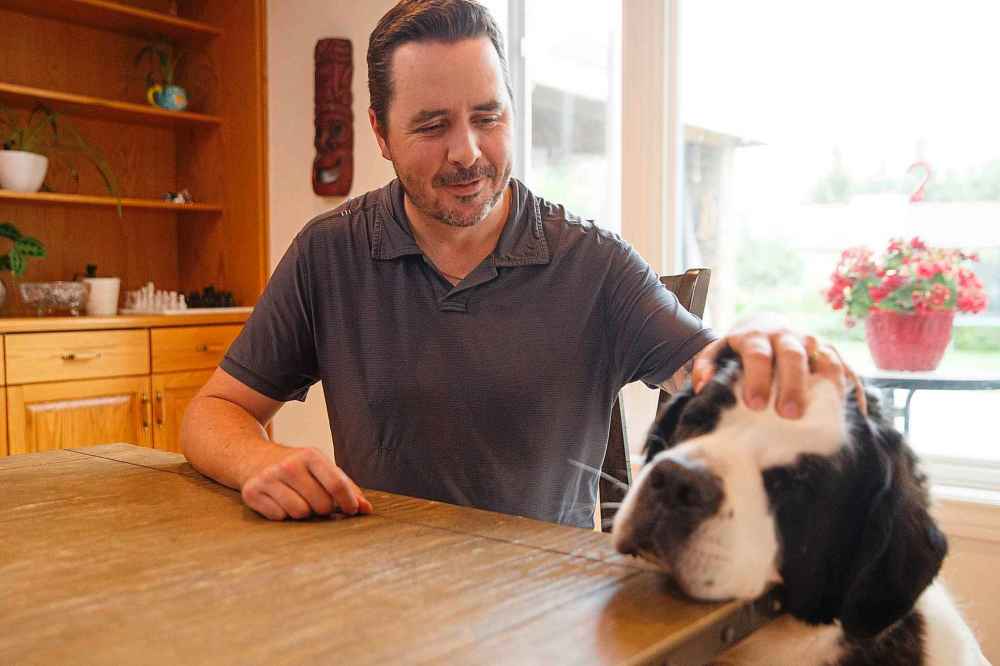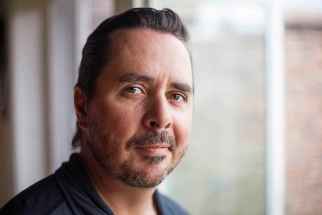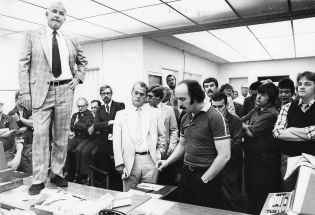Listeners will have last word As radio return receives angry response, Wheeler says he’s ‘going to be better’
Read this article for free:
or
Already have an account? Log in here »
To continue reading, please subscribe:
Monthly Digital Subscription
$0 for the first 4 weeks*
- Enjoy unlimited reading on winnipegfreepress.com
- Read the E-Edition, our digital replica newspaper
- Access News Break, our award-winning app
- Play interactive puzzles
*No charge for 4 weeks then price increases to the regular rate of $19.00 plus GST every four weeks. Offer available to new and qualified returning subscribers only. Cancel any time.
Monthly Digital Subscription
$4.75/week*
- Enjoy unlimited reading on winnipegfreepress.com
- Read the E-Edition, our digital replica newspaper
- Access News Break, our award-winning app
- Play interactive puzzles
*Billed as $19 plus GST every four weeks. Cancel any time.
To continue reading, please subscribe:
Add Free Press access to your Brandon Sun subscription for only an additional
$1 for the first 4 weeks*
*Your next subscription payment will increase by $1.00 and you will be charged $16.99 plus GST for four weeks. After four weeks, your payment will increase to $23.99 plus GST every four weeks.
Read unlimited articles for free today:
or
Already have an account? Log in here »
Hey there, time traveller!
This article was published 26/08/2020 (1933 days ago), so information in it may no longer be current.
When the news broke on Monday, the reaction in Winnipeg was swift and vehement. Thousands of posts flooded social media, most of them blistering with a shared anger and disappointment, calling out a local radio station for hiring a man they describe as a transphobe, a misogynist, and a bigot.
Dave Wheeler knew this was coming. As he prepares to return to airwaves for the first time since he was fired from 92.1 CITI FM in the wake of transphobic comments, he knew he would have to face his critics, and there are many. He’s earned them, and not only for that incident, but for a long string of actions before and after.
“In a really weird way, I’m happy there has been so much response, good and bad,” Wheeler says, chatting over a Zoom call earlier this week. “Because that means people are willing to have a conversation about it. Two years ago, that’s all I wanted to do, was I wanted to have a conversation.”

Since he was announced as the new morning show host at pop station Energy 106, the response has been scathing. People have called the hire “disgusting” and “unacceptable,” and vowed to boycott the station: “This guy is trash like his opinions,” one petition signatory wrote.
Among those who chimed in were NDP MLAs Nahanni Fontaine and Uzoma Asagwara. “Providing a platform to someone who unapologetically espoused racist, misogynistic and transphobic rhetoric… nah,” Asagwara wrote on Twitter. “I’m happy to listen to anything else.”
Enflaming the debate more is the fact that, to make room for Wheeler, Energy 106 canned popular host Sarah Nick, a feminist and vocal LGBTTQ+ ally. (On Tuesday, Nick shared a gracious video thanking fans for their support: “there’s no hard feelings,” she said. “this is what radio is, this is how it works.”)
To many LGBTTQ+ fans of the station, it feels like a “slap in the face,” says Rainbow Resource Centre board member Veronica Gingles. The station has long positioned itself as a Pride supporter and ally; Wheeler’s 2018 firing followed his comments equating trans people with actors who “pretend to be something different.”
“I’m extremely disappointed,” says Gingles, who is a trans woman. “That’s both my standpoint and the centre’s standpoint. We feel the station is tone deaf and alienating people by hiring someone with a proven track record of bigotry against marginalized communities in the name of ratings.”
“In a really weird way, I’m happy there has been so much response, good and bad. Because that means people are willing to have a conversation about it. Two years ago, that’s all I wanted to do, was I wanted to have a conversation.”
– Dave Wheeler
At Energy 106, program director Adam West says he expected this backlash. The reasons for the hiring were simple: the station’s ratings are lagging and Wheeler, West says, is a “proven talent.” But he says he understands why some fans, especially in the LGBTTQ+ community, feel betrayed by the hire.
“They may want to cut ties with us, but we will never cut ties with them,” West says. “What happened at another radio station at another time will not happen here. He knows our policies, and I know him. But part of radio is to get people talking. He’ll still be able to do that, but in a different way. He wants to do better and he will be better.”

For his part, Wheeler says the last two years have humbled him. He says he’s done some soul-searching, and he intends to donate his first paycheque to the Rainbow Resource Centre: LGBTTQ+ youth need that support, he says, and “that’s a small price that I can pay to show that I’m ready to move forward.”
Let’s go back to what he said about how he’d just wanted to have “a conversation.” What he means is that, on the day he’d made the transphobic comments, he started booking trans folks to come on his show and give their retort; that would have made for great radio, he thought.
“What happened at another radio station at another time will not happen here. He knows our policies, and I know him. But part of radio is to get people talking. He’ll still be able to do that, but in a different way. He wants to do better and he will be better.”
– Adam West, Energy 106 program director
“From that day one where everything went down, I wanted to talk about it… I said ‘we’ll have everyone’s ears, we’ll have everyone’s eyes, everyone will be listening’,” he says. “I’m kind of hoping that now we can, because people’s memories are still very vivid on this situation.”
My memory of it is vivid too, made even moreso by the fact I’ve known Wheeler a long time.
We first met in the early 2000s, when I was a young music journalist and he was freshly arrived from Alberta. We had little in common: on the night we met, we became embroiled in a political debate that raged for several hours. I called him a chauvinist pig, or words to that effect, which actually seemed to improve the conversation.
By the end of the night we’d shaken hands and exchanged numbers, willing combatants turned unlikely friends.
Over the years, our paths drifted apart, and I watched with alarm as he grew more provocative on-air. He once argued Winnipeg didn’t have issues with racism; in 2016, he was suspended after protests over two songs he’d written, “Transcona Girls” and “North End Boys,” which were loaded with racist and sexist stereotypes.

Wheeler issued a formal apology after that incident. After the 2018 remarks about trans people, he never did.
“People that have reached out to me, I’ve said, ‘if I’ve offended you by this, then I really am sorry,'” he says. “But I’ve never agreed with this whole blanket statement of: ‘did you apologize?’ It’s like, who am I apologizing to? I’d like to sit down one-on-one with somebody and understand how they felt, and give a much more real apology.”
That increasingly contentious and often offensive direction was, he says, both encouraged by the brass at 92.1 CITI — they did sign him to a contract and syndicate his show after the “Transcona Girls” incident — but it was also one he was comfortable with and willing to take; he never shied away from what he calls “tough topics.”
While I had not seen him in over a decade at the time of his firing, the controversy still reflected the man I knew. He can be brash and even offensive; but he is not ideologically rigid. He does change his opinions, but most of all he craves the battle for them: he wants people to fire back and tell him why he is wrong.
“I see myself as an agitator who is willing to broach topics, and is willing to listen, and is willing to speak on those,” he says. “Because that’s really what life is all about, is learning from people’s different perspectives.”
In the privacy of a one-on-one conversation, that’s an engaging trait. On a mass media platform, it can draw the kind of pot-stirring headlines that some outlets like. But it can also do harm, especially when one dives into issues they do not fully understand: it’s easy to enjoy a debate when one isn’t the target of the barbs at its heart.
“I see myself as an agitator who is willing to broach topics, and is willing to listen, and is willing to speak on those. Because that’s really what life is all about, is learning from people’s different perspectives.”
– Dave Wheeler
On that end, it wasn’t Wheeler that felt the sting of the stereotypes that filled the two neighbourhood songs. It wasn’t Wheeler who heard, in the phrase “pretend(ing) to be different things,” the echo of all the ways he’d been hurt by a society that often did not accept him. It is not Wheeler who suffers the pain of racism in Winnipeg.

To write this piece is tricky. It’s not my intent to defend Wheeler: the debate he has ignited is a consequence of his opinions and statements. He can face the people he has hurt and angered on his own. But if he is to return to radio, then it’s worth putting on record what he says he has learned.
“I think the whole world is changing,” he says. “What I like about it is that a lot more voices are being heard, and I think we’re still as a society trying to figure out that balance, because there is a lot of old-school mentality that is pushing back. I think the progressiveness is good… I think everyone should have a voice.”
In the two years since his firing, Wheeler says, he tried to “keep grinding.” He produced a daily podcast with his wife, Candace Rae. He applied to many radio jobs in Canada and the United States, but none would take him on. In Sept. 2019, he ran for McPhillips MLA under the banner of the Manitoba First party; he finished last, with 237 votes.
During that time, he says, he did seek to hear more from trans people. One of those opportunities came when he helped produce a podcast at his Safety Net Studio, which has not yet been released. The host was a trans woman, and when microphones were off, the two of them chatted.
“We had some really in-depth conversations,” he says. “I was able to learn things from her perspective… I’m not saying she spoke for the whole trans community, but she certainly opened my eyes to things I was curious about.”
Now, with his new role at Energy 106, he pledges a “softer” approach. But he will still be pushed to account for the things he has said, including recently: just earlier this year, he wrote on social media that a round dance protest at Portage and Main in solidarity with the Wet’suwet’en “looks like an anus.”
At the Rainbow Resource Centre, board member Gingles says Wheeler will have to do more to make amends.
“Actions speak louder than words,” Gingles says. “What we’d really like to see is Dave reach out to the communities he has hurt to meet with them, and see first hand how his words and his actions have hurt people… Tigers generally don’t change their stripes.”

Here’s one last point to consider. His rehiring does come during a time of widespread social dialogue about how mass public outcry impacts people’s careers. Around that is one key question: what determines when someone deserves to get another chance?
In a way, the question will answer itself. Of all the jobs in the world, commercial radio host is among the most fickle, and the math is simple: if Wheeler brings in listeners and keeps advertisers happy, he’ll stay. If he doesn’t, he won’t. The public decided his fate in 2018 with their reactions, and they will decide it again now.
“There’s really nothing that I can say to anybody that’s going to change their minds,” he says. “So moving forward, I’m just going to be better, and that’s the only way I can put it. I want to put all that in the past, I want to go back to what I love doing, and I’m just going to be better at it.”
melissa.martin@freepress.mb.ca
Our newsroom depends on a growing audience of readers to power our journalism. If you are not a paid reader, please consider becoming a subscriber.
Our newsroom depends on its audience of readers to power our journalism. Thank you for your support.
History
Updated on Thursday, August 27, 2020 11:40 AM CDT: Updates headline.













